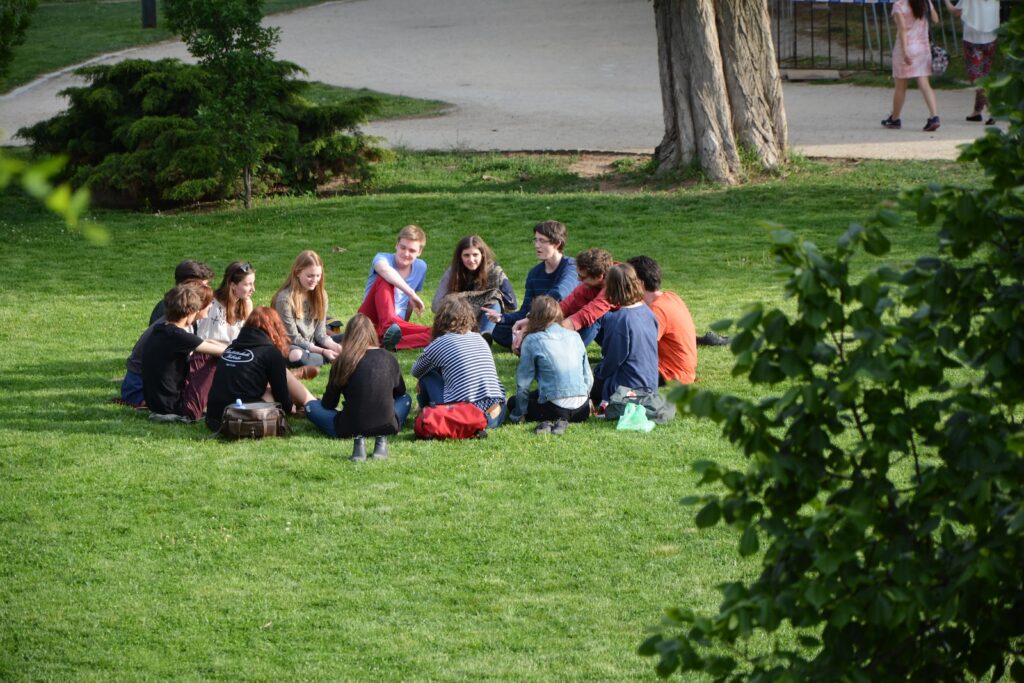WARSAW, August 22nd, 2023 – The beautiful fabric of interfaith and interreligious dialogue is intertwined with the threads of various faith traditions. Each of the religions, large or small, contributes to upholding the right to freedom of religion or belief and striving to eradicate religious intolerance and violence.
On the International Day dedicated to commemorating victims of violence rooted in religion, the OSCE Office for Democratic Institutions and Human Rights (ODIHR) highlights the significance of these efforts.
In this mosaic individuals, from various religious backgrounds unite to promote understanding, empathy and harmonious coexistence. The contributions made by faiths, like Christianity, Islam, Bahá’í, Scientology, Hinduism, Buddhism and others hold great significance in nurturing dialogue and harmony; they should not be interfered with by governments.
As ODIHR Director Matteo Mecacci emphasizes, “Dialogue can be difficult, but it is nonetheless vital.” The combined efforts of religious groups, such as Christians, Scientologists, Muslims, Bahá’ís, Hindus and Buddhists showcase the incredible impact that dialogue can have.
Faith’s in Dialogue

These communities understand the importance of fostering understanding, empathy and respect among faiths. It’s not a noble pursuit; it’s crucial for creating a more harmonious and inclusive world. As we remember those who have suffered from violence rooted in religion let us also celebrate the progress achieved through interfaith collaboration. Let’s renew our commitment, to a future where understanding prevails over ignorance and where dialogue overcomes discord.
Christian communities, representing denominations have always played a vital role in fostering interfaith collaborations. Whether it be through gatherings or interreligious prayer sessions Christians actively work towards bridging theological differences by emphasizing common principles of compassion and benevolence. The World Council of Churches serves as an example of this commitment, to dialogue as it brings together diverse Christian traditions with the aim of overcoming misunderstandings and nurturing unity. And we can not forget to mention the Church of Jesus Christ of Latter-Day Saints in fostering religious freedom, nor the Seventh-Day Adventists with their IRLA.
Scientology being a new religion supports the idea of religious freedom and mutual understanding between different faiths. The Church of Scientology actively takes part in interfaith gatherings around the globe, such as the Parliament of World Religions held in Chicago, the different International Religious Freedom Roundtables and even the Faith and Freedom Summit NGO Coalition, with the aim of fostering tolerance and respect among diverse religious groups. The Church’s focus on spiritual development aligns well, with the broader goals of interfaith discussions.
Muslim communities from around the globe round actively participate in dialogues aimed at promoting peaceful coexistence. Dedicated organizations, such, as the Islamic Society of North America (ISNA) put in effort to debunk misconceptions surrounding Islam and cultivate unity among different faiths. ISNAs efforts include hosting seminars, workshops and collaborative projects that encourage understanding between Muslims and people of religious beliefs.
The Bahá’í communities, guided by principles of unity and harmony have long been advocates for interfaith cooperation. The Bahá’í International Community takes a role, in engaging with interfaith conversations advocating for freedom and the elimination of prejudice. The teachings of the Bahá’í Faith, which emphasize the unity of all religions provide a foundation, for fostering understanding and cooperation.
Hinduism, with its spiritual traditions, plays a significant role in fostering interfaith dialogue by placing a strong emphasis, on tolerance and embracing diversity. Hindu leaders and organizations actively participate in interfaith forums to share insights from their faith and engage in discussions centred around shared values. For instance, the Hindu American Foundation works towards fostering understanding, between Hinduism and other religions while addressing issues related to discrimination.
Buddhist communities, rooted in principles of compassion and nonviolence also play a role in interfaith endeavors. Buddhist leaders and organizations take part in dialogues that aim to promote harmony and mutual respect among faiths. The Dalai Lama, a known leader in the Buddhist community has consistently emphasized the importance of engaging in dialogue between different faiths to foster inner peace and establish harmonious relationships.
Importance of Protecting and Fostering Interfaith
In a world where intolerance and violence often prevail the dedication of these religious communities to interfaith and interreligious conversations offers hope. Their collaborative endeavours reflect the beliefs and responsibilities upheld by OSCE member states reaffirming freedom of religion or belief, as a human right.
ODIHR Director Matteo Mecacci also underlined the arduous yet indispensable nature of dialogue as it:
“gives an opportunity for different religious or belief communities to engage in frank but respectful conversation. This allows members of diverse communities to gain insight into each other’s beliefs, practices and values, fostering mutual tolerance and respect and countering stereotypes and prejudices that can lead to intolerance or even violence.”
Acts of prejudice or hostility towards religious or belief communities like the ones sometimes witnessed in countries such as France, Germany and Russia regularly covered by NGOs like Human Rights Without Frontiers and CAP Freedom of Conscience, rarely occur in isolation. They often coincide with other forms of intolerance. The consequences of violence and discrimination go beyond community harm potentially posing a threat to security throughout the OSCE region.
Tensions between belief communities can escalate into broader conflicts with significant repercussions so it is important for governments to promote dialogue rather than attempting to disrupt relations between religions particularly when it concerns minority groups. For instance, it is unacceptable to advise a woman in Bavaria, Germany, not to collaborate with Scientologists as doing so would jeopardize her support from City Hall in promoting Jewish women who have taken action against the Holocaust. Or for example of France would be their financing of anti-religious outfits such as FECRIS which has fostered hate in Ukraine and all around Europe and the world. Or just another instance of states fostering and perpetrating discrimination is the stance Russia has with most “non-orthodox” like Jehovah’s Witnesses.
Actively fostering exchange and collaboration, rather than hate, among religious and belief communities through interfaith has the potential to advance freedom of religion or belief while creating an atmosphere of peaceful coexistence. This effort includes initiatives aimed at formulating effective anti-discrimination regulations and laws. It is crucial to align the status of belief communities, with international human rights standards while safeguarding everyone’s right to practice their faith without fear of violence. As a note, I would say that there are countries in Asia like Taiwan, which have better records on protecting diversity than some participating states like Belgium, of which even USCIRF and Bitter Winter report about.
Ensuring the security and stability of the OSCE region by promoting freedom of religion or belief is a focus of ODIHR’s mission. ODIHR has a panel of experts from backgrounds and fields who contribute to this effort. An exciting upcoming event on ODIHR’s schedule is the launch of a toolkit that aims to facilitate interfaith and interreligious dialogue and collaborations. This toolkit is designed to foster understanding and dialogue, among religious and belief communities.
On this day of remembrance, let us not only commemorate the victims but also recommit ourselves to a world where understanding eclipses hatred, and dialogue prevails over discord.
The principles at the heart of the OSCE acknowledge that every participating state recognizes the right for individuals to “profess and practice, alone or in community with others, religion or belief acting in accordance with the dictates of his own conscience.” This freedom allows people to choose, adapt or even abandon their faith emphasizing the importance of embracing diversity in society for coexistence.
To summarize, promoting dialogue and understanding among faiths and religions is crucial for progress and peace in our interconnected world. ODIHR’s unwavering commitment, to this cause backed by its team of experts, guides societies towards a future where freedom of religion or belief’s not just a theoretical right but a lived reality. It envisions a world where violence fueled by intolerance becomes a thing of the past. On this day of remembrance let us honor the victims while also reaffirming our dedication to creating a world where empathy triumphs over hatred and meaningful conversations prevail over discord.











